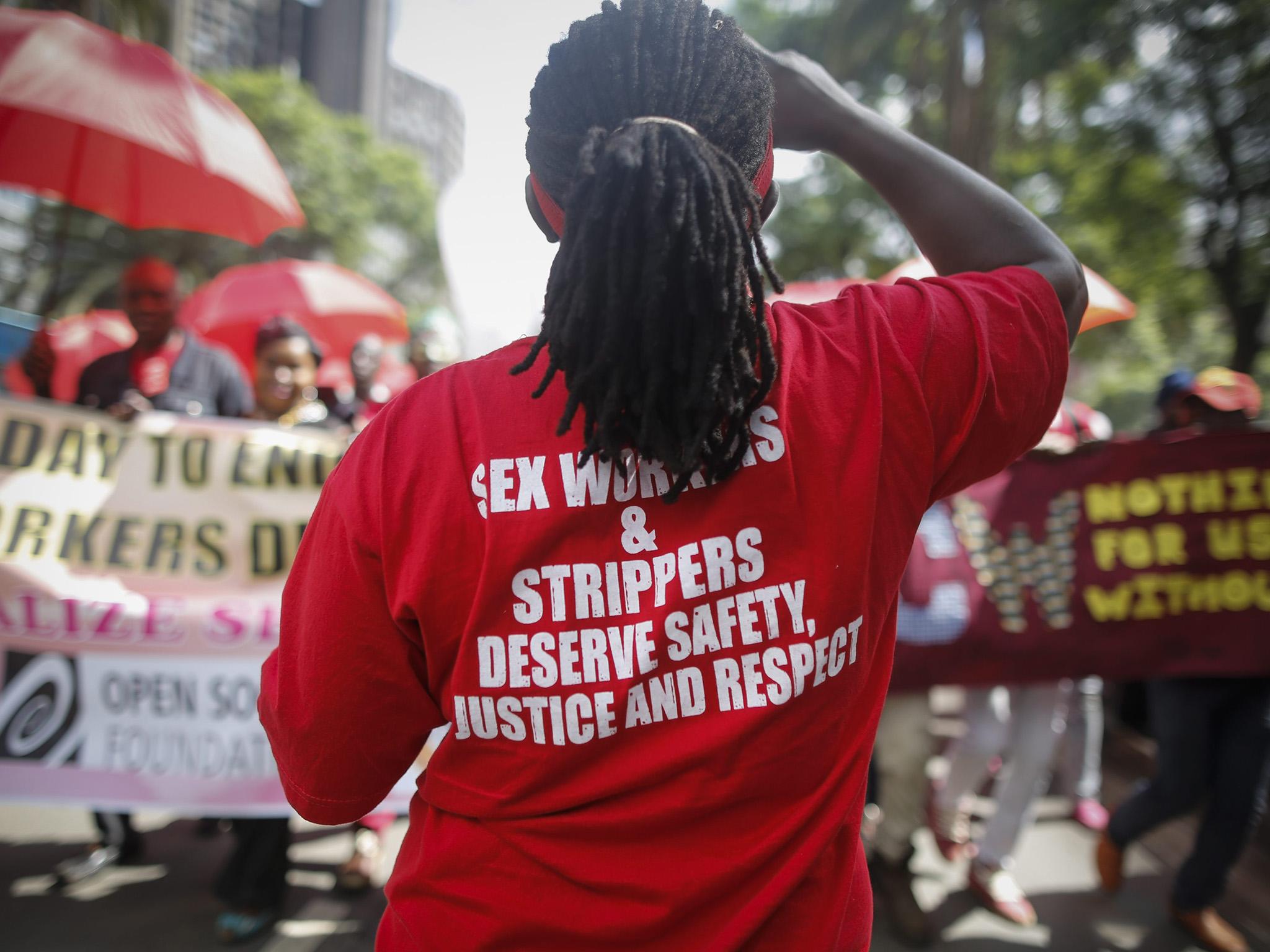Everyone has the right to work without fear of violence, so why should sex workers be any different?
The violence sex workers are subjected to, and their limited access to justice, is not inevitable. It is enabled by social attitudes that position sex workers as second-class citizens

Today, International Day To End Violence Against Sex Workers, impels us to reflect. We should reflect not only on the enduring levels of violence targeted at sex workers but also on the societal stigma and discrimination that gives rise to this violence. We should reflect on how negative attitudes towards sex workers operate as a barrier to the reporting of violence, allowing victimisation to go unchallenged and offenders to act with impunity.
The 17 December has been observed annually for this purpose since 2003. The Day was founded to commemorate the sex workers murdered by the Green River serial killer in the US. Since then, it has become a day for sex workers and their allies to remember those who have lost their lives. And it serves to renew our commitment to the on-going struggle for sex workers’ rights: the right to work safely, legally, and without judgement.
At least 180 sex workers have been murdered in the UK since 1990, and between 45 and 75 per cent of sex workers globally experience violence during their lifetime. This reminds us why this day is needed.
Migrant sex workers in the UK are particularly vulnerable to victimisation. There has, for example, been a reported increase in the number of migrant sex workers murdered since 2010. And although xenophobic hate crime is reported to have increased since the Referendum, migrant sex workers’ immigration status can prevent them from reporting victimisation and accessing support.
In a joint-project between the University of Salford and University of Leicester, we analysed 2,056 crime reports submitted over a two-year period to UK National Ugly Mugs (NUM). This pioneering non-profit organisation works to improve sex worker safety and facilitate access to justice.
Our findings indicate that of all the different types of crime reported to NUM, violence is the most common. Street sex workers are the most likely group to report violence, followed by those working in indoor establishments such as brothels, saunas or parlous. It is street sex workers who are also the most likely to report rape or attempted rape to NUM. While independent escorts are the least likely group to report violence, they’re the most likely to report stalking and harassment.
Yet it is clear that sex workers are often reluctant to report their victimisation to the police. Only two in 10 sex workers reporting crime to NUM said that they were willing to engage directly with the police. This figure increases to nine out of 10 sex workers when NUM acts as an intermediary to share anonymous intelligence with the police.
However, it is neither the type nor severity of the crime that makes sex workers more or less willing to report to the police. Instead, it seems that street sex workers are generally more likely than other types of sex workers, particularly independent escorts, to engage with the police. This is surprising given that street sex workers are criminalised in the UK. This may be because street sex workers are more likely to have pre-existing relationships with support projects that can help them to make official reports. Independent escorts may be discouraged from reporting victimisation for fear of being “outed”, not being believed or being judged by officers.
But the violence sex workers are subjected to, and their limited access to justice, is not inevitable. It is enabled by social attitudes that position sex workers as second-class citizens. It is enabled by dangerous laws: laws which prevent sex workers from working together legally; laws which drive street sex workers to work in unoccupied spaces; and laws which prevent sex workers from engaging with the police for fear of their own arrest, the arrest of their clients and/or co-workers.
As the All-Party Parliamentary Group on Prostitution leads its latest inquiry, this time into so-called “pop-up brothels”, it is essential that it avoids the moral debates that too-often surround the sex industry. Sex workers’ safety must come first.
And so today, we all must stand in solidarity with sex workers everywhere who have experienced violence as part of their work. We must stand with sex workers to demand justice, and to demand laws that work to protect, rather than criminalise, them. Everyone has the right to make a living without fear of harassment, assault, rape or murder. But our solidarity must not end today. Instead, this year’s International Day To End Violence Against Sex Workers must become a turning point: the point from which sex workers are granted the same rights we all expect in our workplaces.
Dr Laura Connelly is a Lecturer in Criminology at the University of Salford


Join our commenting forum
Join thought-provoking conversations, follow other Independent readers and see their replies